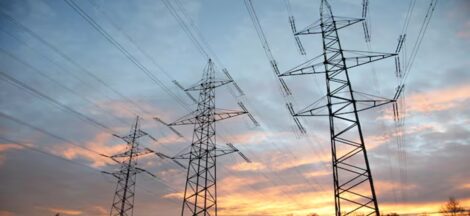NEW DELHI: As India and the four-member European Union Free Trade Association (EFTA) enter the final rounds of negotiations on a free trade agreement (FTA), the decision of Switzerland to bring down its import tariffs on industrial goods to zero has limited the gains that can be derived from the deal for New Delhi.
Switzerland is the biggest trading partner for India in the EFTA by a wide margin with exchanges of $ 17.1 billion followed by Norway at $1.5 billion, Iceland ($15 million) and Lichtenstein ($2.3 million). A team from EFTA is in New Delhi for further negotiations on the pact.
“Switzerland’s decision to eliminate import duties on all industrial goods for all countries starting from January 1 this year changes the dynamics of the negotiations. This decision by Switzerland has profound implications for India’s gains from the ongoing India-EFTA FTA,” according to an analysis by a trade policy think tank Global Trade Research Initiative.
The FTA has been formally named as EFTA-India Trade and Economic Partnership Agreement. The tariff removal by Switzerland does not extend to agriculture products and fisheries but getting access to these markets is difficult even if tariff concessions are managed in the FTA.
Exporting agricultural produce to Switzerland remains challenging due to the complex web of tariffs, quality standards, and approval requirements. “Consequently, with zero industrial tariffs and the difficulty in exporting agricultural produce to Switzerland, India’s prospective gains in merchandise exports are effectively nullified,” GTRI’s co-founder Ajay Srivastava said.
India runs a huge trade deficit with Switzerland. In FY2023, India’s imports from Switzerland stood at $15.79 billion while exports were $1.34 billion, leading to a substantial trade deficit of $14.45 billion.India will give more market access to large Imports from Switzerland as the quantum of its tariff cuts would be much higher. Overall gains in merchandise trade will be negative.
India’s main imports from Switzerland include gold $12.6 billion, machinery $409 million, pharmaceuticals $ 309 million, coking and steam coal $380 million, optical instruments and orthopaedic appliances $296 million, watches $ 211.4 million, cotton $81.3 million, soybean oil $202 million, chocolates $ 7 million. EFTA would request India to eliminate tariffs on all the above items.
Gold, accounting for 80% of India’s imports from Switzerland, is a critical factor. If the FTA does not include gold, it may not meet the WTO condition for FTAs to have duty cuts on substantial trade. Switzerland has large historical accumulations of gold and it primarily refines imported gold. Such Gold cannot meet the Rules of Origin conditions of Mminimum value addition of even 5%. Switzerland may insist upon replacing value addition or tariff transformation conditions with specific processes like refining conditions. India must tread cautiously there.
The EFTA countries request for protection of Intellectual Property Rights (IPRs) beyond normal, especially patents and copyrights in India, will conflict with India’s domestic regulations. Switzerland is home to the biggest pharma and chemical companies in the world including Novartis, Roche, Bayer and Abbot.
In the services sector, the agreement aims to open up sectors like IT, finance, tourism, and education, allowing Indian and EFTA service providers to operate in each other’s markets with fewer restrictions. However, the potential gains in services are limited, as countries typically agree to bind existing levels of policy commitments, implying a continuation of the status quo. Switzerland’s stance on India’s request for priority visas for Indian professionals could prove to be another sticking point.
“Without careful and strategic negotiation, the FTA might not yield the equitable benefits India seeks, potentially leading to increased imports, a wider trade deficit, and minimal gains in export competitiveness,” GTRI said.
Source: The Financial Express



